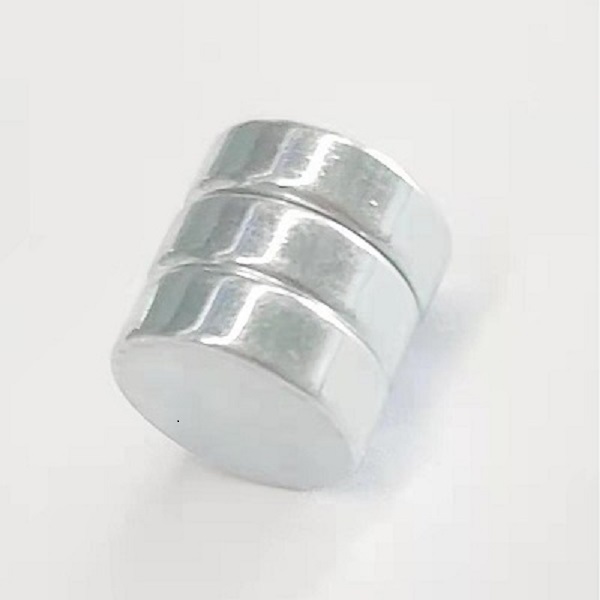Why does a copper plate act like a weak magnet when confronted with a real magnet?
If you drop strong magnets onto a plate of copper, something remarkable happens: the magnets slow down before hitting the surface and appear to levitate slightly, like the copper is another magnet, pushing them away. There’s a fascinating explanation for this seemingly magical reaction, as explained in the video above from the YouTube channel NightHawkInLight. Ndfeb Disc Magnet

What’s happening here has nothing to do with opposing magnetic forces. Copper itself is not magnetic. However, as a magnet approaches copper (and some other metals), the magnetic field causes electrons on the surface of the copper to rearrange themselves and begin rotating. They swirl in a circular pattern perpendicular to the magnetic field, creating resistance.
In other words, the electrons briefly create their own magnetic field, which slows down the magnet’s descent. It’s similar to the way a falling object slows down abruptly if it’s dropped into water.
This phenomenon produces some cool visuals, but its use extends far beyond that. As demonstrated in the video, when a magnet is dropped through a coil of copper wire, this reaction doesn’t happen—the magnet drops straight through. But if the ends of the coil are connected, it completes a circuit, allowing electrons to circle the whole coil. Now when the magnet is dropped through the coil, it noticeably slows down as it approaches the middle. The momentum of the magnet is converted into electrical current.
Ben, who demonstrates the amazing relationship between copper and strong magnets in the video, then does a simple experiment to generate electricity for an LED. When the connection in the copper wire is replaced by the LED and Ben drops the magnet through the wire coil, the LED’s light turns on.
This is how we generate most of the world’s electricity, by passing magnets through coils of metal wire in a variety of ways. Slowing magnets with copper is also used often in roller coasters and high speed train braking systems as a way to slow the train without the use of friction between brake pads and rotors.
A Hacker Spotted a Huge Flaw in the CIA’s X
Is Consciousness Everywhere All at Once?
Fusion Sends Particles Faster than Lightspeed
Scientists Create Quantum 'Alice Rings'
Scientists Find Boat Load of Three-Body Solutions
Solution to Riddle of the Week #6
Earth’s Inner Core Might Be Squishy
World’s Only Mountaintop Impact Crater Discovered
The Sahara Desert Grows Green Every 21,000 Years
Decade-Long Mystery Of Underwater Markings Solved
Found: Lost Rooms in an Ancient Egyptian Pyramid
This Is What Happens When You Play a VR Character
A Part of Hearst Digital Media
We may earn commission from links on this page, but we only recommend products we back.

Neodymium Magnets 3mm ©2023 Hearst Magazine Media, Inc. All Rights Reserved.
